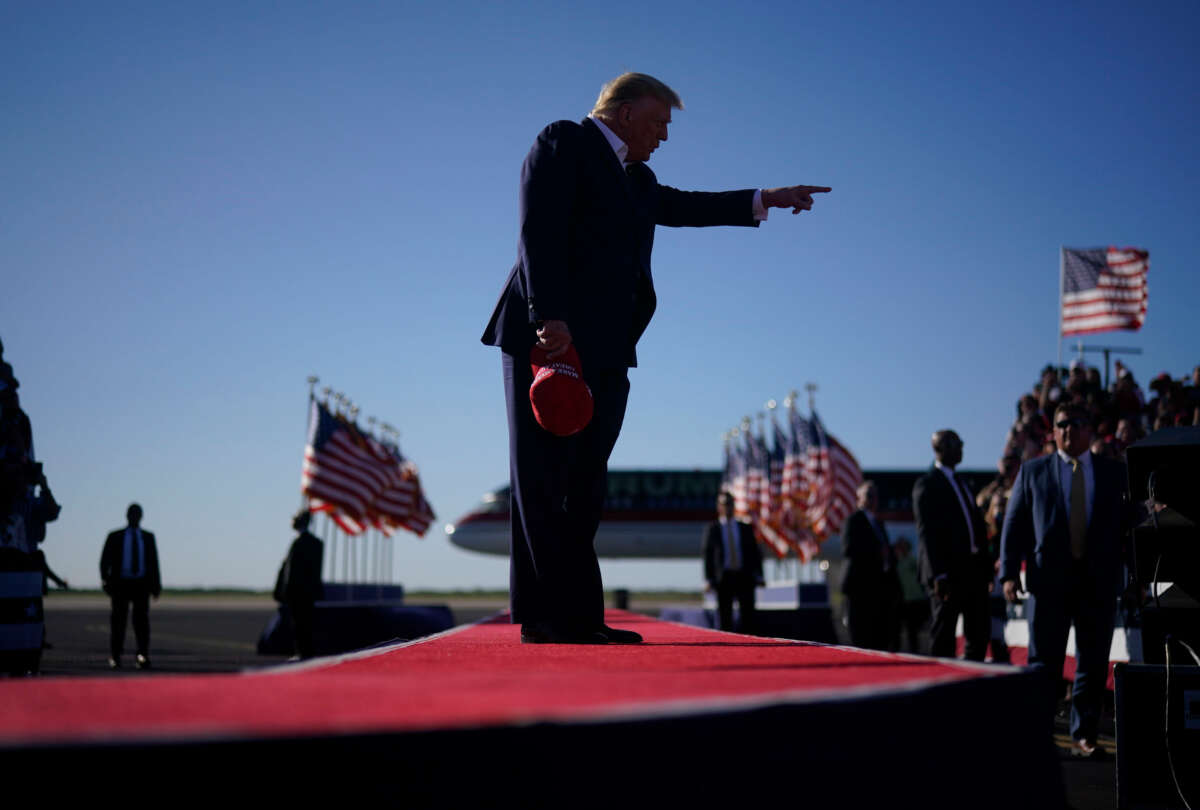The Department of Justice (DOJ) has reportedly obtained new evidence suggesting that former President Donald Trump sought to obstruct the return of several government documents he had improperly transferred from the White House to his Mar-a-Lago estate in Palm Beach, Florida.
The new details of Trump’s obstruction efforts were published in a Washington Post report over the weekend, which cited numerous sources with knowledge of the DOJ investigation into Trump, which is being led by special counsel Jack Smith.
In late spring of 2022, Trump was subpoenaed by the DOJ, which had been in talks with the National Archives and Records Administration (NARA) over how the former president had failed to return government documents he had removed from the White House upon his departure from the presidency, including hundreds of documents marked as classified.
NARA had sought to get the documents back for over a year, as the Presidential Records Act requires all documents handled by any president to be turned over to the agency when their term expires. After Trump eluded those efforts for all of 2021, NARA had threatened to involve Congress in the matter, prompting Trump and his lawyers to agree to return some of the documents in January 2022.
Shortly after, NARA alerted the DOJ that some of the documents that had been retrieved were marked as classified, prompting the agency to issue a subpoena in June for the return of all classified documents that remained at Mar-a-Lago.
Trump did not turn over all classified documents at that time, however, despite his lawyers crafting and signing an affidavit affirming that he had. While it’s been known for months that Trump had ordered people at Mar-a-Lago to move classified material elsewhere on the estate after the DOJ subpoena was executed, new evidence has surfaced suggesting that Trump had personally rifled through the material prior to the subpoena being carried out.
Citing statements from unnamed sources familiar with the investigation’s proceedings, The Washington Post reported that Trump went through those classified documents “apparently out of a desire to keep certain things in his possession.” Investigators’ assumptions on Trump’s motivations are based on witness statements and security camera footage, among other evidence, The Post said.
Obstruction has long been at the heart of the Mar-a-Lago documents investigation, which Smith has overseen since around the time last fall that Trump announced he would be running in the 2024 presidential election. Indeed, the affidavit included in the warrant to search the premises in August included a statement from the FBI saying there was “cause to believe that evidence of obstruction” would be found.
A key element of any obstruction case is to demonstrate intent. The new evidence suggests that Trump indeed sought to deceive DOJ investigators when they subpoenaed him in June, as investigators have also found evidence that Trump sought legal advice on how to keep the documents after being told by his advisers that it would be illegal for him to do so. Text messages and emails provided to the Justice Department by a former aide to Trump also suggest that he told advisers to mislead investigators on what documents were returned to them and what, if any, remained in his possession.
Thousands of government documents have been retrieved from Trump’s Mar-a-Lago estate since the start of 2022. Of those documents, more than 300 were marked as classified.
Press freedom is under attack
As Trump cracks down on political speech, independent media is increasingly necessary.
Truthout produces reporting you won’t see in the mainstream: journalism from the frontlines of global conflict, interviews with grassroots movement leaders, high-quality legal analysis and more.
Our work is possible thanks to reader support. Help Truthout catalyze change and social justice — make a tax-deductible monthly or one-time donation today.
